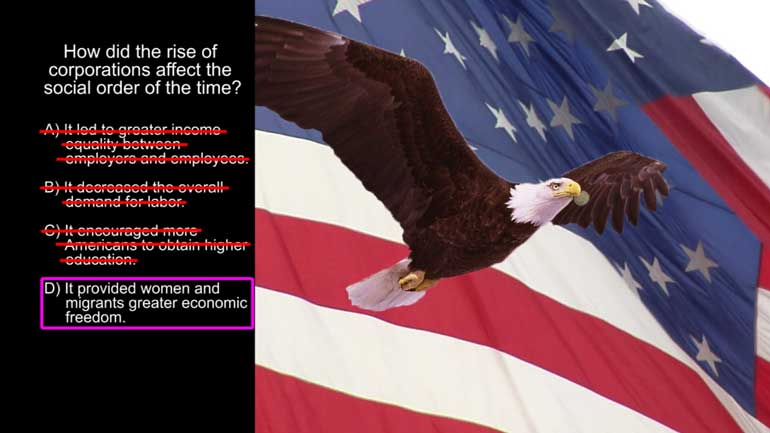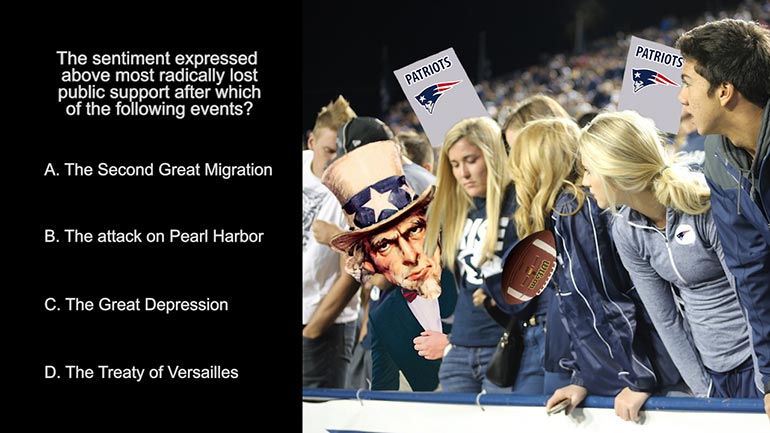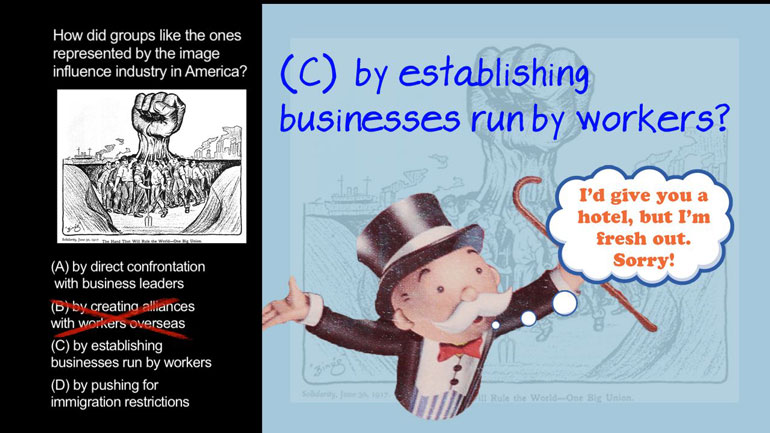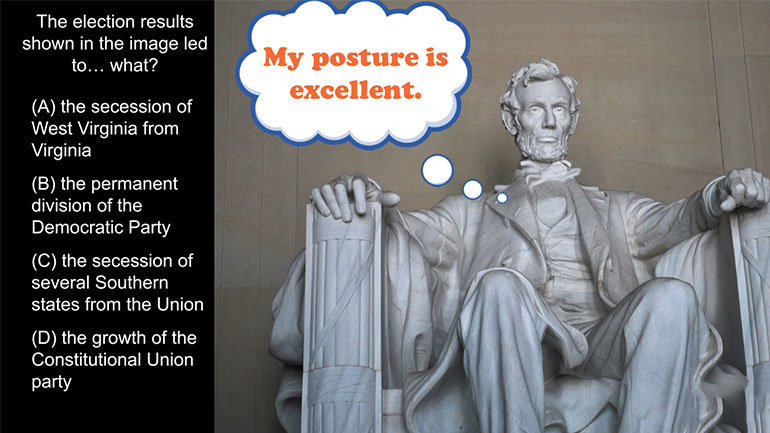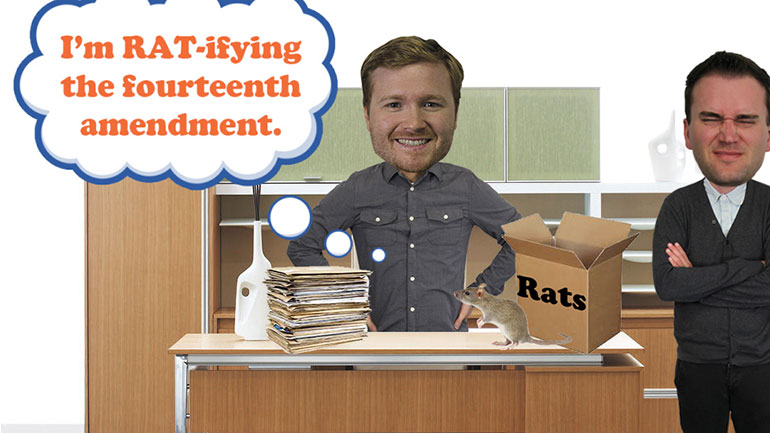ShmoopTube
Where Monty Python meets your 10th grade teacher.
Search Thousands of Shmoop Videos
1920s Videos 3 videos
AP U.S. History 1.3 Period 7: 1890-1945. How did the rise of the corporations affect the social order of the time?
AP U.S. History 2.1 Period 7: 1890-1945. Opponents of Stimson's policies would most likely have supported which of the following?
AP U.S. History 2.2 Period 7: 1890–1945. The sentiment expressed above most radically lost public support after which of the following events?
AP U.S. History 2.1 Period 7: 1890-1945 236 Views
Share It!
Description:
AP U.S. History 2.1 Period 7: 1890-1945. Opponents of Stimson's policies would most likely have supported which of the following?
Transcript
- 00:00
Thank you We sneak and here's your shmoop dooz your
- 00:05
brought to you by the league of nations the fantasy
- 00:08
sport of choice for diplomats everywhere All right take a
- 00:12
look at this excerpt in your present coming All right
- 00:20
And the question opponents of stimson's policies would most likely
Full Transcript
- 00:24
have supported which of the following and hear the potential
- 00:27
answers ratifying All right well what exactly is this question
- 00:32
asking stimson's policies as described in his letter involved the
- 00:37
idea that the united states would not recognize any treaty
- 00:41
or agreement which may impair the treaty rights of the
- 00:45
united states So by simply not recognizing these treaties stimpson
- 00:49
advocated that us bury its head in the sand rather
- 00:52
than engage in any kind of international conflict So we
- 00:56
need to figure out which answer best describes a policy
- 00:58
that opponents of this idea would have supported Would opponents
- 01:03
of stimson's policies have supported be abstaining from involvement in
- 01:08
world war two Well abstaining from world war two meant
- 01:10
that you'd prefer to stay neutral in an international conflict
- 01:14
rather than get involved That sounds pretty similar to what
- 01:17
isolationists like stimpson would have wanted It's not b or
- 01:20
c could stimson's opponents have supported de refusing to take
- 01:26
a position in the spanish american war Well even with
- 01:29
conflicts involving the united states isolationists preferred to stay out
- 01:33
of the fray So this answer describe stimpson As well
- 01:37
That knocks out b which means opponents of stimson's policies
- 01:40
would have supported a ratifying the league of nations collective
- 01:44
security clause Exactly In nineteen twenty the senate rejected of
- 01:49
bill to join the league of nations since being a
- 01:51
part of the group would have required the us to
- 01:53
defend other members should they be attacked The senate wanted
- 01:57
to stay as far away from those conflict possible So
- 02:01
a is the right answer Stimpson may have been vocally
- 02:04
opposed to the idea of collective security But you know
- 02:07
it was probably just coming from a place of wealth 00:02:10.4 --> [endTime] collective insecurity
Related Videos
AP U.S. History Diagnostic 1. Relationships like the one shown in the image resulted in the development of...what?
AP U.S. History Diagnostic 15. How did groups like the ones represented by the image influence industry in America?
AP U.S. History Diagnostic 10. What led to the splintering of the political parties shown in the image?
AP U.S. History Diagnostic 11. The election results shown in the image led to...what?
AP U.S. History Diagnostic 12. How did the Reconstruction Acts open up political opportunities for former slaves?
